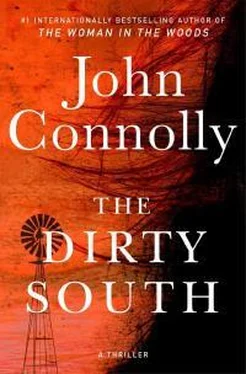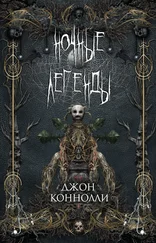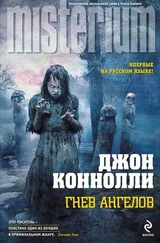‘Is it?’
‘Is it what?’ said Griffin.
‘Ongoing? Of interest? Both?’
‘Are you trying to be funny?’
‘Not at all. It just strikes me that if there is an investigation into the girl’s death, it hasn’t made much progress at all, which begs the question: Just how interested are you?’
‘I don’t think I appreciate your tone.’
‘I hear that a lot.’
‘I’ll bet you do. Did you know Patricia Hartley?’
‘No.’
‘Or her family?’
‘No.’
‘This your first time in Burdon County?’
‘First time in Arkansas.’
‘You can prove that, I suppose?’
‘Would I have to?’
‘You might, if you were the suspect in a killing.’
‘What killing would that be?’
‘The killing of Patricia Hartley.’
‘I’m confused.’
‘And why is that?’
‘My understanding is that Patricia Hartley’s death was determined to be accidental, but you’ve just described it as a killing.’
‘Mr Parker, I’m starting not to like you. You appear averse to transparency.’
‘Patricia Hartley’s body was discovered on December tenth of last year. If I have to, I can prove where I was on that date.’
‘And where would that have been?’
‘New York.’
‘Were you in employment at that time?’
‘I was.’
‘Doing what?’
‘Am I under arrest?’
‘No.’
‘Good, because I thought I might have missed part of the conversation.’
‘I know the feeling,’ said Griffin.
‘If I’m under arrest, you’re obliged to Mirandize me.’
‘I’m aware of that.’
‘And offer me access to a lawyer.’
‘I’m aware of that too.’
‘Then you’ll also be aware that I don’t have to answer your questions. I’m going to reach for my wallet now so I can pay the check. I’d prefer if you, or the gentleman by the door, didn’t shoot me. Is he one of your officers?’
‘He is.’
‘I think I’ve seen him around. He has a good eye.’
‘I’m sure he’ll be flattered to hear it. Where’s your wallet?’
‘In the pocket of my jacket.’
The jacket was hanging from a hook beside Parker’s head.
‘If it’s all the same to you,’ said Griffin, ‘I’ll ask my officer to retrieve it for you, just in case.’
He raised his left hand, summoning Naylor.
‘Mr Parker’s wallet is occupying a pocket of his jacket. I’d be obliged if you’d find it for him.’
Before he reached for it, Naylor asked if the pocket held any sharp objects or anything else of which he should be aware. That was how he said it, Griffin noted: ‘of which I should be aware.’ The boy really was wasted in Cargill.
‘No,’ said Parker.
‘Are you armed?’
‘No.’
Which was a pity, Griffin thought, because Boyd’s was a bar, not a restaurant, which made it illegal to carry a firearm on the premises. It would have been sufficient justification for placing Parker in a cell overnight while Griffin tried to figure out the Hartley angle.
Naylor located the wallet and handed it to the chief, not Parker.
‘Don’t mind if I take a look, do you?’ said Griffin.
‘Would it matter if I did?’
‘I’ll take that as permission.’
He didn’t find much: cash, a pair of credit cards, and a New York State driver’s license in the name of Charles Parker. There was also a small photograph of a woman and a young girl, both blond, both beautiful. Griffin held it up so the man could see it.
‘Your family?’
The alteration in Parker was momentary but profound. The rage was gone, and only grief remained in its place.
‘Yes.’
‘Did something happen to them?’
No reply.
‘I asked you a question,’ said Griffin.
With that, the rage returned. It was bridled, but only barely.
‘I’m done answering your questions,’ said Parker. ‘Arrest me, or give me back my wallet and let me be done with your county, your town, and your dead girls.’
Griffin didn’t surrender the wallet.
‘Dead girls,’ he said.
‘What?’
‘You mentioned dead girls. Patricia Hartley was just one girl.’
Parker stared at him, and Griffin stared back.
‘Officer Naylor,’ said Griffin, ‘arrest Mr Parker for obstruction of justice. And be sure to read him his rights.’
4
Griffin let Naylor take care of searching and cuffing Parker, and placing him in the back of the patrol car. Parker didn’t try to resist or make any objection to his treatment, which confirmed to Griffin that the man was familiar with the mechanics of the process. He drove Parker to the station house in silence, Naylor following in his own vehicle, and there relieved the prisoner of his belt, shoelaces, wallet, and watch before placing him in a holding cell for the night. He figured Parker had eaten, even if the size of the portions at Boyd’s had defeated him, but he did offer him a cup of coffee, which was declined. By then Kel Knight had arrived to take over the night shift, and the fourth full-time officer, Lorrie Colson, had returned from a domestic disturbance call. One of them would have to be at the station at all times while Parker remained in custody, but Naylor lived only a block away, and said he would be willing to pull on a coat and boots to provide cover if the need arose.
Griffin took Kel Knight aside once Parker was safely behind bars. Knight was a rawboned, balding man who had never been known to raise his voice above conversational levels, and had yet to fire a weapon at anything other than a range target during his eighteen years in law enforcement, first up in Clay County, then down in Cargill. He had come back to this, his hometown, to care for his ailing parents, both of whom died within months of his return, which didn’t say much for his abilities as a nurse, although admittedly they were already circling the drain, by the time Knight arrived.
He had served in Vietnam, which might have explained his reluctance to shoot at anyone again, Kel Knight having endured a superfluity of carnage in Southeast Asia, and thus exhausted his interest in the taking of lives, Asian or otherwise. Also, like many servicemen from that conflict, he retained no hostility toward his former enemies. When more than twenty-five thousand South Vietnamese men, women, and children were settled at Fort Chaffee, Arkansas, Knight was among those who tore down the GOOKS GO HOME signs that began to sprout like toadstools in the vicinity of the base. He had no time for those that professed hatred toward the refugees, the ones that whispered of leprosy and venereal disease, and complained about the incomprehensibility of the newcomers’ language, the smell of their food, and the undoubted criminal aspect of their character, these Russos and Mullers and Reillys, these Nowaks and Campbells and Karlssons, each themselves only a generation or two removed from the immigrant ships, and whose parents and grandparents had been forced to endure similar slurs in this once strange land.
If Knight had a flaw, it lay in the asceticism of his mien. He didn’t drink, smoked only a pipe, and had never sworn within earshot of Griffin or, quite possibly, anyone else. He was a father to four teenage boys, which meant he must have had carnal relations with his wife at least four times, but it wasn’t clear that he’d enjoyed the experience, or was in a hurry to revisit it now that his wife’s childbearing years were behind her. He was a hard man to get to know, and a harder man to like. But Griffin had done both, and was now as close to a friend as Kel Knight possessed.
‘What did this Parker do?’ Knight asked.
‘He irritated me,’ said Griffin.
‘If that was enough to put a man behind bars, half the town would be cluttering up our jail.’
Читать дальше












